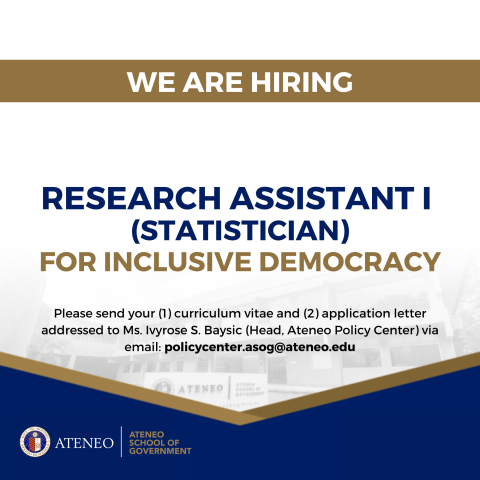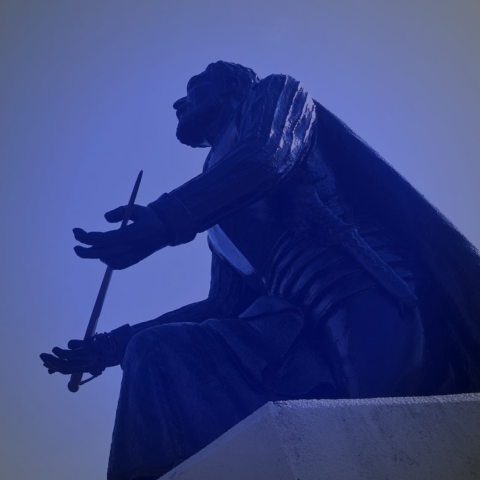Ateneo Policy Center presents Analysis on Pandemic Management in the Philippines
15 Nov 2021
Last November 11, 2021, the Institute of Southeast Asian Studies - Yusof Ishak Institute, held a regional economic studies webinar, titled “Managing and Mismanaging the Pandemic in Indonesia, Philippines, and Vietnam: Approaches and Consequences”.
The webinar featured speakers from Indonesia, Vietnam, and the Philippines not only to discuss the differences in the approaches taken by the said countries in combating the COVID-19 pandemic but also to provide the context to why these steps were taken. The webinar also shed light on the variations in health and economic outcomes of these three countries which account for three-quarters of the total population in the ASEAN region.
Ms. Sheena Valenzuela, Research Associate and Program Coordinator, presented on behalf of Dean Ronald Mendoza and the Ateneo Policy Center. She started her discussion by highlighting that despite the Philippines experiencing a decrease in COVID-19 cases in the past few weeks, the country’s case is special as it has implemented a COVID-19 response which is among the most stringent globally. She also highlighted that the country has the longest school closure in the world and is among one of the three countries which have not publicly opened schools. Ms. Valenzuela also discussed that the highest form of lockdown (the Enhanced Community Quarantine (ECQ/modified ECQ) was implemented whenever there is a threat of widespread infection and to avoid overwhelming the already weak healthcare system of the country. She further discussed that the Philippine economy has been on a downward trend since the pandemic started with five straight quarters of contraction to the country’s GDP.
Ms. Valenzuela discussed various factors that contribute to the continuous on-and-off lockdown seen in the Philippines. For instance, she noted that vaccination progress is a key issue, but vaccine supply is not the limiting factor anymore. Logistical challenges in addition to vaccine preference are challenges to vaccination. Some Filipinos are refusing the China-manufactured vaccine, Sinovac, saying that they prefer another brand.
Vaccine hesitancy is also a problem with 6 out of 10 Filipinos surveyed saying that they refuse to take the vaccine for numerous reasons. The Philippines’ healthcare system was also not strengthened during the course of the pandemic which posed a major threat. Health workers also called for the resignation of the Philippines’ Secretary of Health due to allegations of misuse of government funds supposedly for the COVID-19 pandemic response. Health-seeking behavior among citizens has reduced due to fears of shouldering exorbitant fees when they get confined in private hospitals. Ms. Valenzuela also highlighted that despite the country being in lockdown for 19 months, the government has only provided two months’ worth of social transfer to those greatly affected. As such, people were forced to leave their residences in order to keep by.
Ms. Valenzuela closed her presentation by highlighting that there is a need for the Philippine government to engage in evidence-based response, particularly using testing information to inform our containment strategy
During the question-and-answer portion of the webinar, Dr. Jayant Menon curated the questions from the participants and delivered them to the speakers.

In a question about which things can be improved, Dean Ronald Mendoza emphasized that an emerging consensus internationally is that vaccination is a key element moving forward. Vaccine rollout and vaccine hesitancy should be properly addressed by the governments. Moreover, healthcare systems should be inclusive. Dean Mendoza also cited the test-trace-and-treat system present in countries such as South Korea and Taiwan which proved to be extremely helpful when pandemics happened. He also mentioned that moving forward, different sectors should establish some core adjustment capabilities in order to live alongside the threat of COVID-19.





